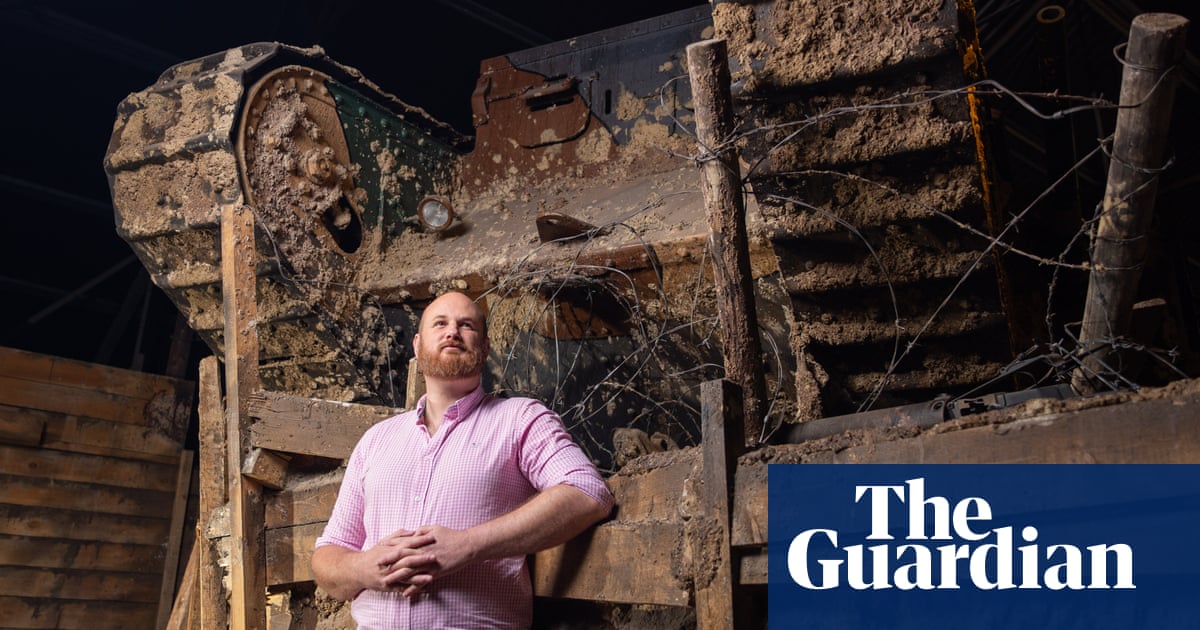My name is Mark Smith. I am a former diplomat and policy adviser at the Foreign, Commonwealth and Development Office (FCDO). I spent my career working in the Middle East directorate and serving in the Arab world. As a lead officer on arms sales policy, I was responsible for assessing whether the UK government’s arms sales adhered to legal and ethical standards under domestic and international law.
In August 2024, I resigned over the UK government’s refusal to halt arms sales to Israel amid the bombardment of Gaza. This decision followed over a year of internal lobbying and whistleblowing. My resignation made headlines, and weeks later, the new Labour government announced it would finally suspend arms sales to Israel. While this was welcome, it came far too late. Israel has continued to commit atrocities in Gaza as the UK stands by, unwilling to act.
My time at the FCDO exposed how ministers can manipulate legal frameworks to shield “friendly” nations from accountability. They stall, distort and obscure official processes to create a facade of legitimacy, while allowing the most egregious crimes against humanity to take place. Now, as the US – one of our closest allies – proposes the full-scale ethnic cleansing of Gaza, what will our response be?
What I witnessed was not just moral failure but conduct that I believe crossed the threshold into complicity with war crimes. The British public deserves to know how these decisions are made behind closed doors – and how systemic dysfunction enables the government to perpetuate harm while shielding itself from scrutiny.
As a lead adviser on arms sales policy, my role was to gather information on the conduct of foreign governments involved in military campaigns, particularly regarding civilian casualties and adherence to international humanitarian law. This information formed the basis of reports that advised ministers on whether continued arms sales were lawful.
The UK’s legal framework is clear: arms sales must cease if there is a “clear risk” that weapons could be used to commit serious violations of international law. Civil servants are bound by a strict code of impartiality, requiring us to produce neutral, evidence-based advice. Any attempt to alter or manipulate this advice for political convenience is not just unethical – it is unlawful.
However, during my tenure, I witnessed senior officials under intense pressure from ministers to skew the legal assessment. Reports were repeatedly returned to me with instructions to “rebalance” the findings – to downplay evidence of civilian harm and emphasise diplomatic efforts, regardless of the facts. I was often summoned for verbal instructions – a tactic deliberately employed to avoid creating a written record that could be subject to freedom of information requests or legal scrutiny.
In one instance, a senior official bluntly told me, “This looks really bad,” before urging me to “Make it look less stark.” My protests were ignored. Significant edits were made to my reports, shifting the focus away from credible evidence of war crimes to paint a misleading picture of “progress” by foreign governments. This was not an isolated case – it was part of a systemic effort to suppress inconvenient truths.
The most concerning example of this manipulation occurred during my work on arms sales to Saudi Arabia amid its military campaign in Yemen. The UK government was fully aware that Saudi airstrikes were causing massive civilian casualties. In a high-level meeting with senior officials, including legal advisers, it was acknowledged that the UK had exceeded the threshold for halting arms sales. Yet instead of advising ministers to suspend exports, the focus shifted to finding ways to “get back on the right side” of the law.
Rather than confronting the illegality, officials resorted to delaying tactics – extending reporting deadlines and demanding additional information that was unnecessary. This “wait for more evidence” approach created a loophole, allowing arms sales to continue while the government feigned compliance. I raised my concerns repeatedly, only to be overruled. One of my colleagues, equally troubled by what we were witnessing, resigned over the issue. I soon followed.
The UK was ultimately forced to suspend arms sales to Saudi Arabia after losing a judicial review brought by civil society organisations. But instead of learning from this failure, the government responded by changing the law to make it harder to challenge arms exports in court. A year later, arms sales to Saudi Arabia resumed.
While the Saudi case was alarming, what I witnessed regarding UK arms sales to Israel was even more concerning. Israel’s repeated bombardments of Gaza have killed thousands of civilians and destroyed vital infrastructure, actions that are clearly incompatible with international law. Yet the UK government continued to justify arms sales to Israel, relying on the same flawed processes and evasive tactics.
During Israel’s current military campaign in Gaza – a campaign marked by unprecedented destruction and the deliberate targeting of civilian areas – I grew increasingly concerned. By this time, I was serving as a diplomat in Dublin, where Ireland’s staunch support for Palestine put me in an uncomfortable position. I was expected to defend UK policy, but I could not in good conscience do so without answers.
When I raised questions with the FCDO about the legal basis for our arms sales to Israel, I was met with hostility and stonewalling. Emails went unanswered. I was warned not to put my concerns in writing. Lawyers and senior officials besieged me with defensive instructions to “stick to the lines” and delete correspondence. It became clear that no one was willing to address the fundamental question: how could continued arms sales to Israel possibly be legal?
The Foreign Office’s handling of these issues is nothing short of a scandal. Officials are bullied into silence. Processes are manipulated to produce politically convenient outcomes. Whistleblowers are stonewalled, isolated and ignored. And all the while, the UK government continues to arm regimes that commit atrocities, hiding behind legal loopholes and public relations spin.
I followed every internal procedure available to me to raise my concerns. I engaged the whistleblowing team, wrote to senior officials and even contacted the foreign secretary, David Lammy, directly. At every turn, I was met with delays, obfuscation and outright refusal to engage. It became clear that the system is not designed to hold itself accountable – it is designed to protect itself at all costs.
The UK’s complicity in war crimes cannot continue. We must demand transparency and accountability in our arms export policies. Ministers must be held to the same legal and ethical standards that they claim to uphold. Civil servants must be empowered to provide impartial advice without fear of political interference, and whistleblowers must be protected, not punished, for speaking the truth.
The situation in Gaza could not be more acute. The UK’s closest ally now proposes the mass expulsion of 2.1 million people from Gaza and the demolition of one of the most densely populated civilian areas on Earth – this is ethnic cleansing. I call on my former colleagues – those who still believe in the values of integrity and justice – to refuse to be complicit. Do not rubber-stamp reports that whitewash crimes against humanity. This is not self-defence – it is collective punishment. It is genocide. The time for silence is over. Do not allow ministers to trade human lives for political expediency. The time for accountability is now.
-
Mark Smith is a former Foreign Office policy adviser
-
Do you have an opinion on the issues raised in this article? If you would like to submit a response of up to 300 words by email to be considered for publication in our letters section, please click here.

 3 months ago
84
3 months ago
84

















































